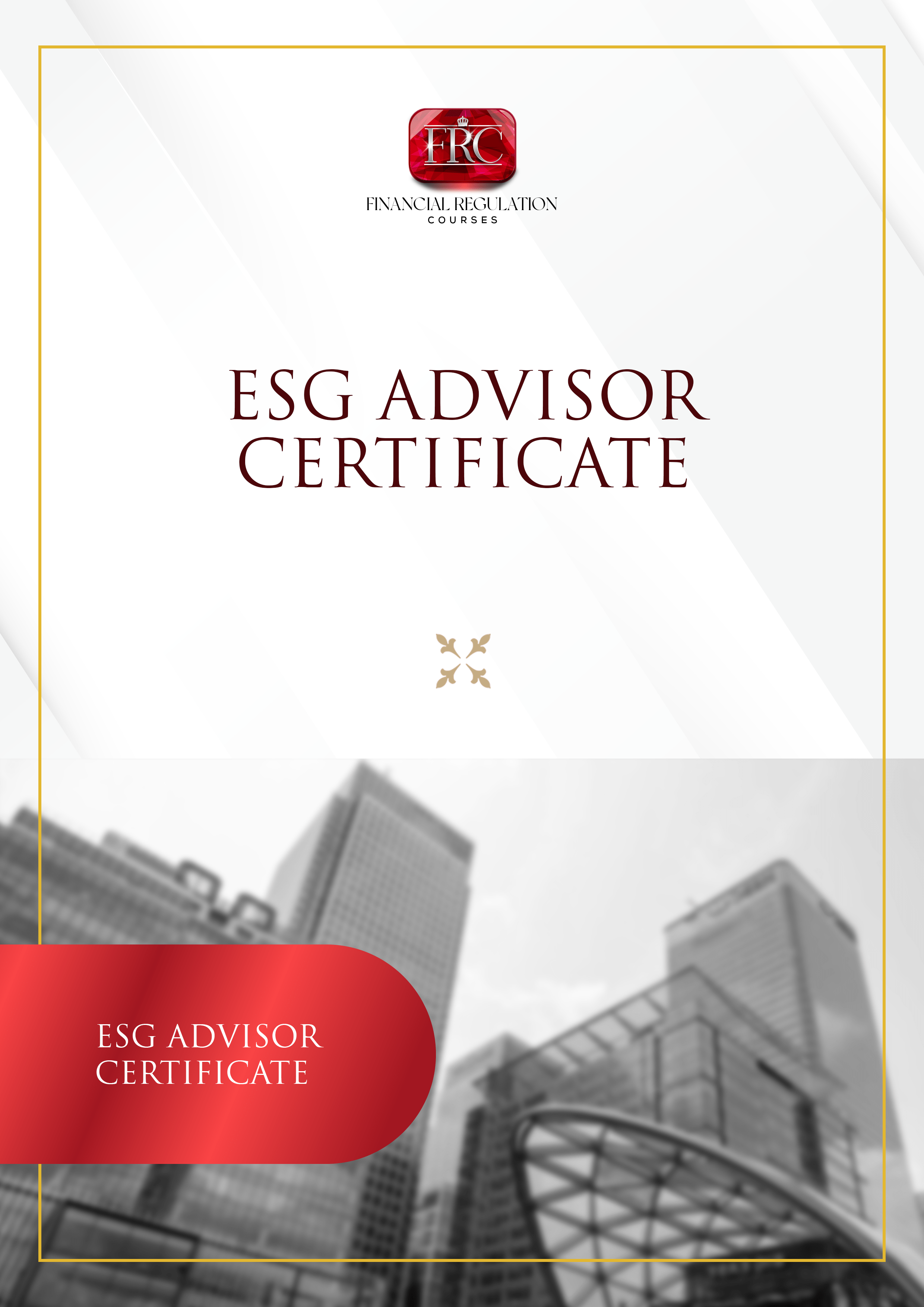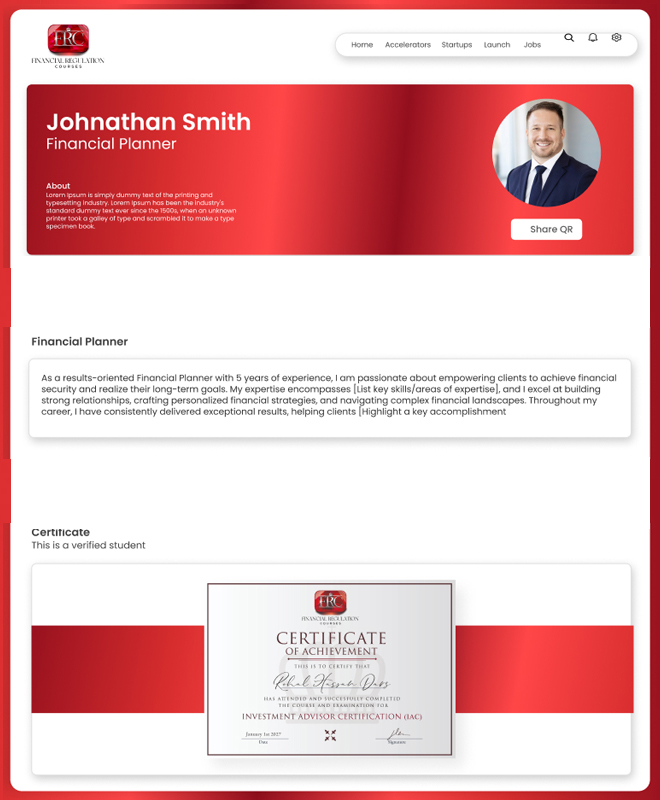In today's complex financial landscape, the role of accountants is expanding beyond traditional number-crunching duties to include advisory, risk management, and compliance responsibilities. With this shift, the demand for accountants who possess advanced knowledge, specialised skills, and professional certifications has grown significantly.
Professional accountancy courses are now more essential than ever, offering accountants the expertise needed to succeed in an increasingly regulated and competitive environment. In particular, courses focusing on areas such as Anti-Money Laundering (AML) have become indispensable for those looking to thrive in the field. Financial Regulation Courses offers specialised qualifications, including their Anti-Money Laundering Course, which is tailored to equip accountants with the skills required to navigate one of the most critical aspects of financial regulation today.
The role of accountants has evolved substantially over the past decade. Traditionally, accountants were responsible for recording financial transactions, preparing statements, and managing tax filings. However, as businesses grow more globalised and regulatory scrutiny increases, accountants are now expected to provide a wider range of services, including risk analysis, compliance advice, and strategic financial planning.
This expansion of responsibilities has made professional development more important than ever, with accountants needing to stay ahead of changes in both national and international financial regulations. Accountants must now be proficient in emerging areas such as Anti-Money Laundering, financial technology (FinTech), and international accounting standards like IFRS (International Financial Reporting Standards).
Professional courses provide accountants with the necessary knowledge and skills to keep pace with the changing demands of the profession. Whether for new graduates entering the field or experienced professionals seeking to stay competitive, these courses offer both foundational training and specialised qualifications in areas such as tax, auditing, management accounting, and compliance.
In an increasingly interconnected world, accountants must adhere to global standards and ensure their organisations are compliant with a host of international regulations. The UK's exit from the European Union has added complexity to compliance requirements, making it essential for accountants to understand both domestic and international regulatory frameworks.
Courses like ACCA (Association of Chartered Certified Accountants) and CIMA (Chartered Institute of Management Accountants) emphasise compliance with global standards such as IFRS and GAAP (Generally Accepted Accounting Principles), equipping accountants to work in a global marketplace. Similarly, the Anti-Money Laundering Course offered by Financial Regulation Courses helps accountants meet the UK's stringent AML requirements, ensuring they can identify and mitigate risks related to financial crime.
Ethical behaviour is at the heart of the accountancy profession. Accountants are entrusted with sensitive financial information, and any breach of this trust can have severe consequences for businesses and the wider economy. Professional courses place a strong emphasis on ethics, ensuring accountants are equipped to navigate complex ethical dilemmas.
Institutions like the ICAEW (Institute of Chartered Accountants in England and Wales) and ACCA offer robust modules on ethics and integrity. The Anti-Money Laundering Course also provides critical training in detecting suspicious activities, reporting obligations, and adhering to legal requirements, all of which reinforce an accountant’s role in maintaining the highest standards of professional conduct.
While general accountancy knowledge is essential, the field offers numerous opportunities for specialisation. Many accountants choose to focus on areas such as taxation, auditing, forensic accounting, or financial analysis. Professional courses provide the opportunity to gain expertise in these areas, helping accountants to stand out in a competitive job market.
Specialisation is particularly important when it comes to regulatory compliance. The Anti-Money Laundering Course by Financial Regulation Courses, for instance, provides in-depth training on AML regulations, enabling accountants to become compliance experts. With financial crime and money laundering being major concerns for governments and businesses alike, AML expertise is highly sought after in today’s job market.
In the UK, professional accountancy qualifications are often seen as a gateway to career progression. Many senior roles in finance, such as Chief Financial Officer (CFO) or Financial Director, require advanced qualifications like ACCA or CIMA. Completing these courses not only enhances an accountant's skills but also increases their earning potential.
For example, an accountant with expertise in Anti-Money Laundering can command a higher salary, as their skills are crucial to protecting businesses from regulatory penalties and financial crime. The Anti-Money Laundering Course provides this specialised knowledge, giving accountants a valuable skill set that can lead to career advancement.
Technology continues to transform the accountancy profession, with advancements in automation, artificial intelligence (AI), and cloud computing reshaping how accountants do their work. Accountants now need to be proficient in digital tools and software that allow for real-time financial reporting and data analysis.
Many professional courses now include training in financial technologies, ensuring accountants are prepared to work with the latest tools. The Anti-Money Laundering Course also addresses how technology can be used to track and report suspicious financial activities, offering accountants insights into the cutting-edge software and systems used in AML compliance.
Professional accountancy courses not only offer academic and practical knowledge but also provide valuable networking opportunities. Many institutions, such as ICAEW and CIMA, offer networking events, conferences, and alumni associations where professionals can meet peers, exchange ideas, and explore career opportunities.
Completing a course like the Anti-Money Laundering Course can also open doors to a network of professionals working in compliance and financial regulation. These connections can be instrumental in advancing one's career and staying informed about industry developments.
In today’s regulatory environment, accountants play a critical role in preventing financial crime. Anti-Money Laundering regulations have become a top priority for governments and businesses, as failure to comply can result in severe financial and reputational damage.
The Anti-Money Laundering Course by Financial Regulation Courses is specifically designed to give accountants the knowledge and skills to comply with the UK's AML laws. It covers essential topics such as:
By completing this course, accountants can enhance their expertise in one of the most important areas of financial regulation, ensuring they are equipped to protect businesses from the growing threat of money laundering.
Professional accountancy courses are no longer optional for those looking to succeed in this dynamic and complex field. The demands placed on accountants are ever-increasing, with global standards, technological advancements, and regulatory pressures all shaping the profession. Courses like ACCA, CIMA, and the Anti-Money Laundering Course offered by Financial Regulation Courses provide the foundational knowledge and specialised skills required to thrive.
Whether you are an aspiring accountant looking to enter the profession or a seasoned professional aiming to stay competitive, investing in your professional development through recognised courses is essential. In particular, AML expertise has become critical for accountants working in today’s highly regulated financial environment, and completing an Anti-Money Laundering Course can offer a clear advantage in your career.
Be the first to know about new class launches and announcements.

Financial writer and analyst Ron Finely shows you how to navigate financial markets, manage investments, and build wealth through strategic decision-making.





